START Summit offers an innovative take on entrepreneurship conferences – entirely student-run it gives a fresh perspective on Europe’s startup landscape.
It’s scheduled for March 21-22, 2024, in St. Gallen, Switzerland.
The history of START Summit dates back to 1997 when it was established as START Global by students from the University of St. Gallen. They initially organised the START Forum. START Summit was later established as one of the Global Projects and had its first event in 2007. In 2015, the first ‘big Summit’ took place on the campus, and in 2016, the event relocated to the Olma Messen St.Gallen, the biggest exhibition hall in the city.
Fast forward to 2023, and START Summit attracted over 6,000 participants and featured 150+ speakers.
In 2024, another milestone awaits, as the event will be one of the first to take place in the newly constructed St.Galler Kantonalbank Halle, the largest hall at the Olma Messen.
While there are numerous startup conferences worldwide, what truly sets START Summit apart is that it’s entirely run by students.
From the second year students can take responsibilities across the variety of positions available to manage the entire event. Over 80 students fill positions in marketing, communications, PR, legal, finance, administration, content, brands and so on and work on this event almost full time and voluntarily, for which they receive study credits.
I travelled to St. Gallen to meet the team from START Global at a small event co-organised by them and to learn more about their work and the innovation that comes out of this event. The event was held on campus, at the Square building, where they held a panel discussion and a keynote with founders and a venture capital firm. Afterwards I spoke with Jan Bohe, Managing Director Communications and Chiara Britschgi, Head of Public Relations from START Global and here I share the insights with you.
What really stood out for me and the reason this event caught my attention in the first place is that the event is run entirely by Gen Z professionals. Gen Z birth year ranges between 1997-2015, and this is a generation that is characterised by growing up in the digital age, with easy access to technology and internet from a young age.
Their approach to organising and marketing this event differs from how my generation approaches event management. I wanted to share this new perspective and innovation, demonstrating what the event industry across all generations can learn from them.
It’s important to understand the complexity of this student-organised event. Typically, students spend around eight semesters at the university, with those who take event related roles usually work at 1 to 2 START Summits during their time at university.
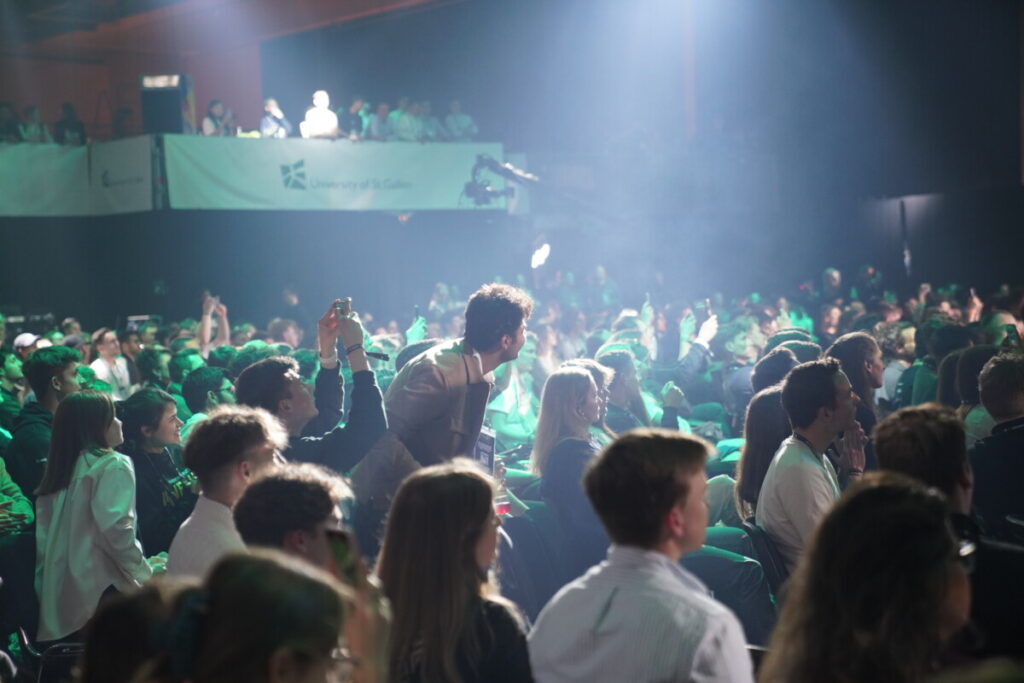
These are the challenges they face and how they address them.
Onboarding and offboarding
The onboarding of new team members requires integrating them into their role within a short period or time. It requires equipping them with all the necessary information quickly and training them for the tools that will be used during the planning process.
To tackle this challenge, they host a team-building onboarding event in the mountains near St. Gallen for new team members. During this event, they introduce the work programmes and workflows to these newcomers.
Given that students typically commit to one year and then transition out, knowledge retention is essential. Hence, the offboarding process involves documentation, and new team members receive mentorship from the outgoing cohort to preserve the knowledge.
Community engagement
Due to the constant turnover of team members and the tight schedule to prepare for the event in March, there’s limited time for year-round community engagement
It’s necessary to keep community engagement for the entire year to advertise the event but also to advertise the new positions for event management. If there’s no community engagement during this time and nothing happens until the new team starts, the event loses momentum to engage with their audience only on the event date.
To address this challenge they’ve partnered with Forbes DA to host joint virtual and live events where they interview start-up leaders and founders in the lead up to START Summit.
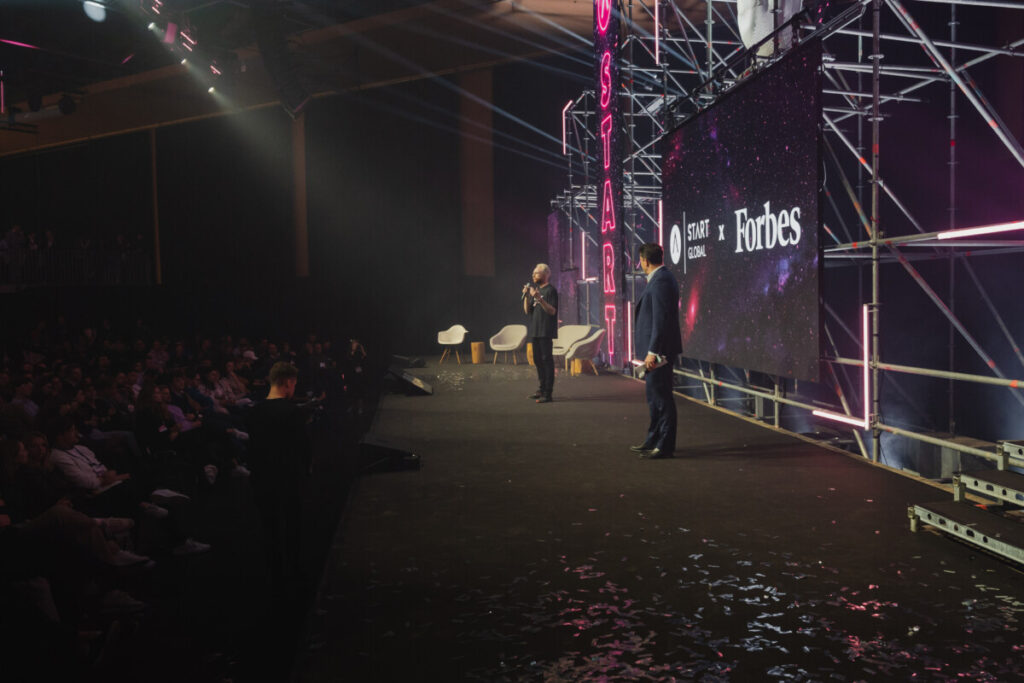
Managing growth
Over the past years the event has grown in such a way that more teams and teamies (the name they give to their team members) have been added to support the organisation.
To facilitate this growth, a new role of Vice President of Operations was introduced. This role plays a vital part in coordinating communication among all teams.
Accommodation choices for event participants in St. Gallen
There are about 1,500 rooms in the city of St. Gallen, with more than 1,000 further rooms in the wider region.
While the students don’t need hotel rooms for the most part, room allocation goes to speakers, sponsors and other guests who attend START Summit. Until now there were always enough rooms to provide accommodation to all involved and there are more rooms being added with the newly opened Tailormade Hotel LEO St.Gallen (101 rooms) and one more hotel in the pipeline.
In this regard, St. Gallen Convention Bureau with their expertise and close contacts at the local hotels is ready to offer assistance in allocating rooms to event attendees.
With challenges come exciting opportunities for START Summit. Here are some of the exciting new developments for the event.
New communication channels
At the moment most of START Summit communication happens via email, LinkedIn and Instagram but they will be also adding TikTok to showcase a more raw and spontaneous content from the event and behind the scenes.
Attracting big name international speakers
With the growing international profile of the event, it is now able to attract bigger name speakers from the international start-up scene.

Steep learning curve and opportunities to make an impact
For most students getting involved, working at START Summit represents their first work experience, accompanied by a steep learning curve and opportunities to make an impact.
They build extensive networks within the startup scene, and many former team members choose to stay in the startup ecosystem, either to launch their own ventures or to work for startups.
The skills and experience they gain depend on their assigned department, which may encompass stakeholder management, side event coordination, and interactions with investors.
Resource limitations mean that their most significant resource is their time, as they handle all tasks in-house, including website and app development, IT, ticket administration, and app content integration – all of which involve acquiring new skills.

Here are two examples of the event specific roles:
Side events organiser:
For side events, team members must manage suppliers, venue logistics, catering, invitation setup, and budget decisions in close collaboration with team leaders. As team leaders often lack the capacity to oversee side events, those responsible for side event management assume full responsibility from A to Z.
No matter how meticulously they plan, unforeseen challenges will arise, and readiness to address them is vital. The ability to independently find solutions is an underestimated skill, and side event organisers must be prepared to troubleshoot before involving their superiors. Assuming this level of responsibility at a young age offers a tremendous opportunity for learning and growth.
Supporter coordinator:
With over 500 individuals contributing to the event, these volunteers have varying levels of availability and commitment. Effectively managing them as supporter coordinators included creating shift schedules and ensuring they have all necessary information, including age and any required insurance.
Managing growth
As the event continues to grow year after year, the team is proactively planning for how to adapt to this expansion. In the initial phase, the team aims to enhance its presence in Switzerland by forming media partnerships with Swiss brands and universities, not only within Switzerland but also in the broader DACH region, which includes Germany and Austria. Universities such as the University of Mannheim and ETH in Zurich are among their potential partners.
Subsequent steps involve extending their reach beyond the DACH region to include the Nordics, London, and Paris.
In 2024, the event will relocate to the St. Galler Kantonalbank hall, the newest and largest venue at Olma Messen, solidifying its position as the largest entrepreneurship event in Switzerland. The objective is to increase the number of visitors from 6,000 to 7,000.
This move to the St. Galler Kantonalbank hall is a strategic decision that enables the standardisation of their hall planning processes, eliminating the need to start from scratch each year. With the new hall, they will establish a venue plan that will remain consistent for future event editions. This standardised approach not only enhances quality but also saves time and eliminates the need to reinvent the wheel each year.
Engaging the audience on-site
Throughout the event, the team hosts interactive formats to engage the audience. These formats include workshops with companies, speed dating sessions, pitching competitions with cash prizes, co-founder matchmaking, and a startup fair where startups can present themselves.
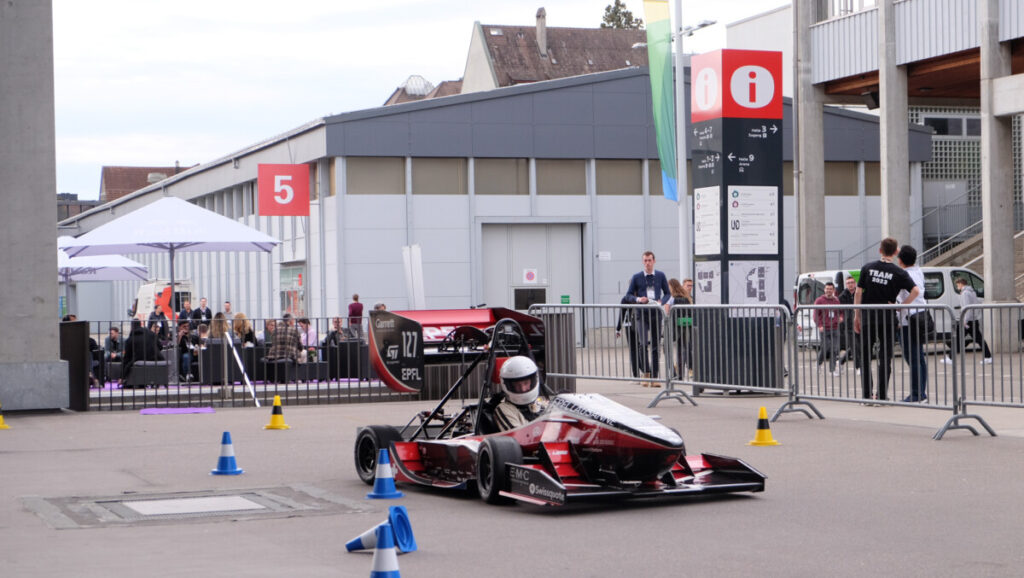
Global Network
To extend the entrepreneurial spirit beyond St. Gallen and to identify and invite startups to participate in START Summit, START Global has established local Chapters called START ‘their city’, e.g. START Munich, START Lausanne in other universities. Together they help each other grow: each chapter appoints a president and team members to coordinate local club activities, while St. Gallen provides support in terms of finance, branding, and knowledge. The goal with these chapter clubs is to expand the reach of START Summit and foster startup growth in the respective regions. These local clubs also host competitions, with winners from these regional contests receiving complimentary tickets to attend START Summit in St. Gallen.
Engaging with the local club offers additional benefits, such as networking opportunities and the chance to become a START alumni after leaving the regional club.
Many companies are familiar with START Global and actively seek to recruit START alumni.
Regional chapters typically have a larger membership than St. Gallen, as individuals can join without the obligation of organising events. In St. Gallen, everyone is involved in organising START Summit, which requires a high time commitment.
Next to organising START Summit, START Global also organises START Hack, a hackathon held in St. Gallen parallel to START Summit, and START Fellowship, an incubator and accelerator program that brings founders from low-middle income countries to Switzerland, providing them with comprehensive support on their entrepreneurial journey.
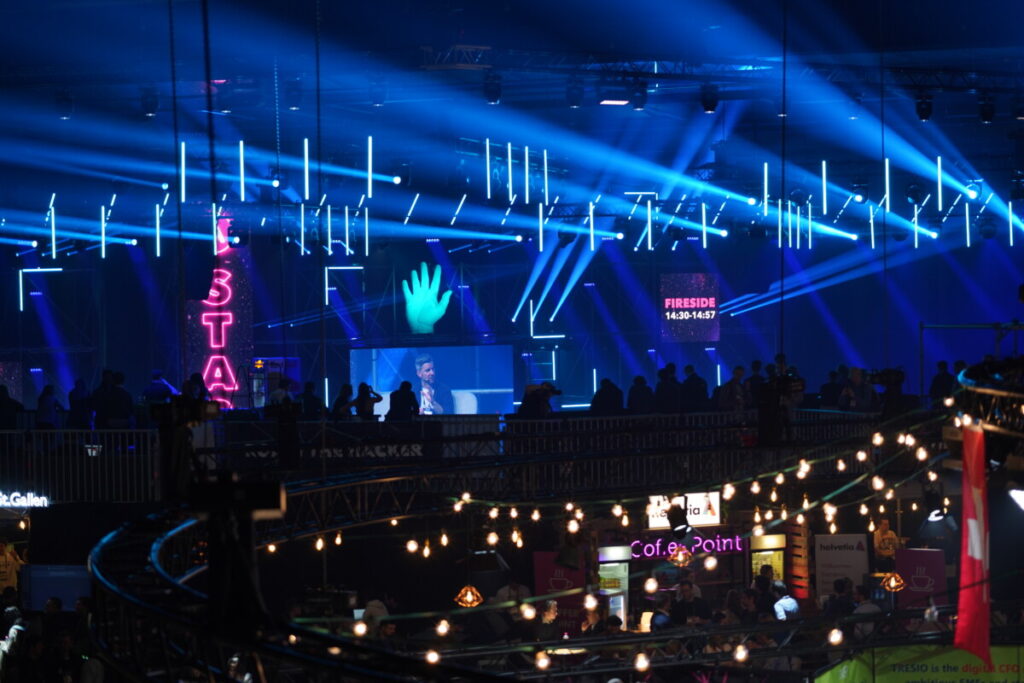
In conclusion
Conducting the interview with Jan and Chiara from START Global team was incredibly informative and inspiring. It allowed me to gain an understanding of how they organise an event of such scale while studying at one of Switzerland’s most academically demanding universities.
Their field of study is not events, making it all the more impressive how they acquire expertise within a relatively short period of time.
Secondly, I was deeply impressed by their unwavering focus on the ‘why.’ Instead of following trends in events or marketing, they begin by understanding why they need to implement a particular format or strategic partnership. Given their limited resources and time, having a clear ‘why’ is their greatest asset.
The event will take place on March 21-22, 2024 in St. Gallen, Switzerland.
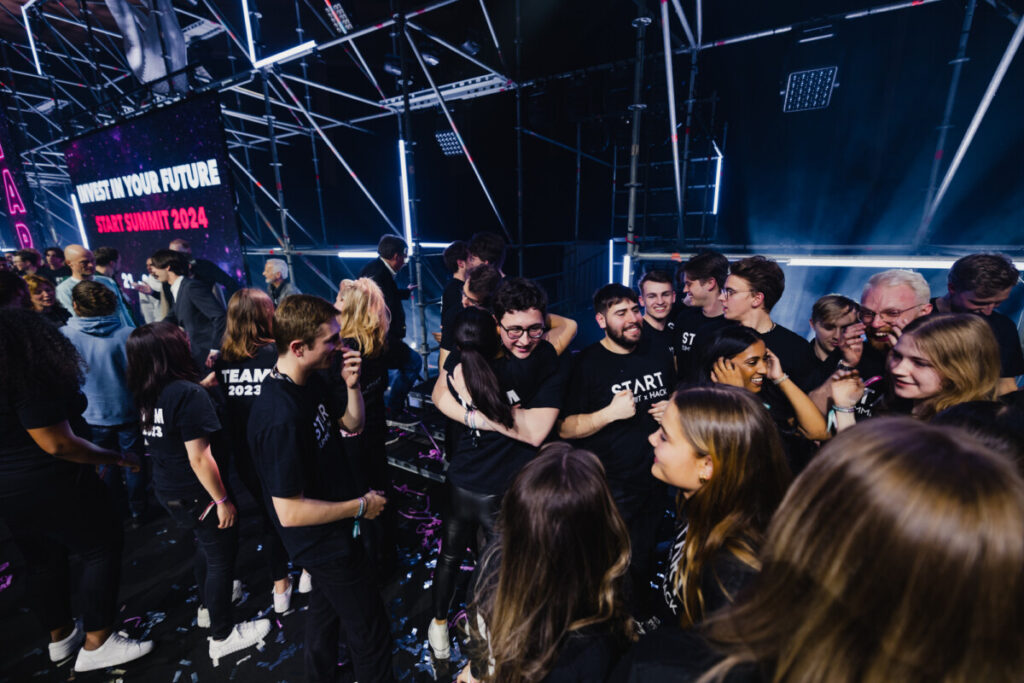
Photo credits: START Global



No Comments